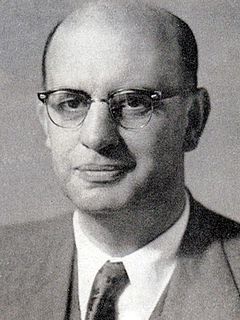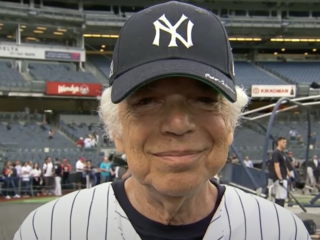A Quote by August Wilson
The most valuable blacks are those in prison, those who have the warrior spirit, who had a sense of being African. They got for their women and children what they needed when all other avenues were closed to them.
Related Quotes
... as recently as the mid-1970s, the most well-respected criminologists were predicting that the prison system would soon fade away. Prison did not deter crime significantly, many experts concluded. Those who had meaningful economic and social opportunities were unlikely to commit crimes regardless of the penalty, while those who went to prison were far more likely to commit crimes again in the future.
Those who kill their own children and discriminate daily against them because of the color of their skin; those who let the murderers of blacks remain free, protecting them, and furthermore punishing the black population because they demand their legitimate rights as free men - how can those who do this consider themselves guardians of freedom?
Ideas about mothers have swung historically with the roles of women. When women were needed to work the fields or shops, experts claimed that children didn't need them much. Mothers, who might be too soft and sentimental, could even be bad for children's character development. But when men left home during the Industrial Revolution to work elsewhere, women were "needed" at home. The cult of domesticity and motherhood became a virtue that kept women in their place.
The hardest bits of my book to read were the easiest bits to write because they were the most immediate. Probably because I had never stopped thinking about them on some level. Those bits I was just channelling and those were the most exciting writing days. The bits I found harder were the bits that happen in between, you know, the rest of living. There were whole years, whole houses, that I just got rid of.
The Declaration of Independence, the Constitution, and the Bill of Rights were all written by affluent white males, but to discuss them in any meaningful way, you have to bring in the roles of African Americans - the enslaved blacks - and the roles of women, who were scarcely acknowledged by those documents. You have to discuss why slavery wasn't outlawed by the Constitution, why women weren't given the votes. The Bill of Rights isn't about dead white males anymore, and it's not just about live white males either; it's about every minority group that exists.
I'm coming to a sense of a women's movement which was extraordinarily important in the struggle for freedom in Ireland and immediately afterwards, but then some of those women who were involved in the movement got involved in representative positions and perhaps some of them got a bit distanced from the grassroots issues. But also the women's movement itself seemed to say, "No, we've got our own government, our own parties in power" and they sat back.
Jem seemed to look through her then, as if he were seeing something beyond her, beyond the corridor, beyond the Institute itself. "Whatever you are physically," he said, "male or female, strong or weak, ill or healthy--all those things matter less than what your heart contains. If you have the soul of a warrior, you are a warrior. All those other things, they are the glass that contains the lamp, but you are the light inside." He smiled them, seeming to have come back to himself, slightly embarrassed. "That's what I believe.
I needed a vacation. I needed 5 women. I needed to get the wax out of my ears. My car needed an oil change. I'd failed to file my damned income tax. One of the stems had broken off of my reading glasses. There were ants in my apartment. I needed to get my teeth cleaned. My shoes were run down at the heels. I had insomnia. My auto insurance had expired. I cut myself every time i shaved. I hadn't laughed in 6 years. I tended to worry when there was nothing to worry about. And when there was something to worry about, i got drunk.







































